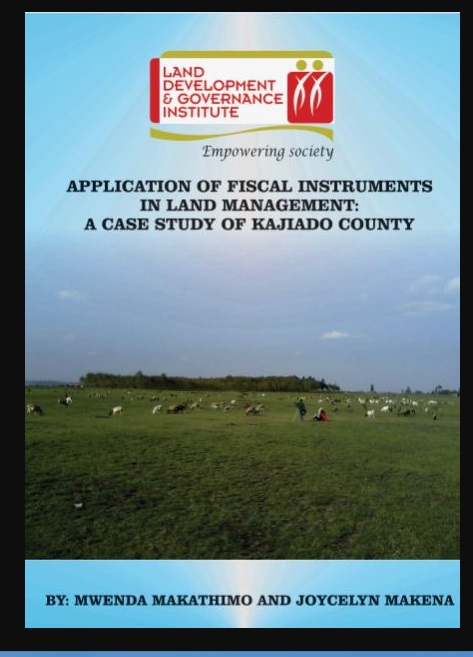Resource information
Fiscal instruments are tools that governments use to manage revenue and expenditure and therefore influence the growth (or stability) of the various sectors of the economy. Government revenue is derived primarily through taxation. In Kenya, land taxation has contributed less than 1% of government revenue for the past three years. The Sessional Paper No. 3 on the National Land Policy provides for the establishment of clear fiscal framework for land management will generate public revenue; provide a stable fund for acquisition of land for banking, servicing land, facilitating the efficient utilization of land, providing incentives for appropriate land uses and discouraging speculation. This research assessed the land taxation, land use and land administration practices within Kajiado County with a view of making recommendations towards improvement of the land based taxation in order to improve its contribution to government revenue. The main land uses in Kajiado County are pastoralism; commercial, industrial and residential development; mining and quarrying; agriculture and wildlife conservation. The study found that land use has changed over the past 10 years with 13.24% increase in agricultural land cover recorded due to increased cultivation; 42.5% increase in mining activity and a 30.9% increase in urban development. These land use changes need to be tapped to contribute to government revenue. The study found that the administration of Land Tax is done through the Local Authority, the District Land Registries while environmental levies are charged by NEMA, various Water Resources Boards, Local Authorities and the Judiciary and the District Environment Offices for environmental levies. The study further found that the community did not feel the impact of revenue collected primarily due to limitations in collection of Land Taxes, governance issues in Land Tax administration and the lack of up to date computerized information on fiscal cadastre. 75% of the study respondents were of the opinion that the Tax Level was adequate to meet Revenue requirements and provide Land Management Services. The study recommended various measures to increase the Land Tax Base and improve Land Tax administration and its application for public benefit.


